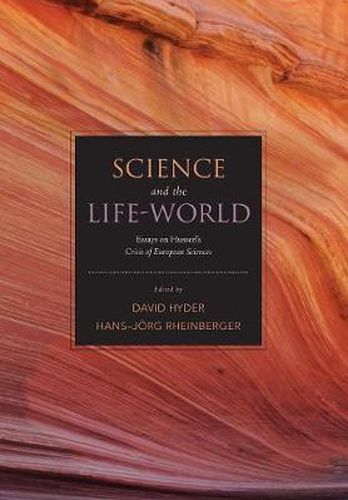Readings Newsletter
Become a Readings Member to make your shopping experience even easier.
Sign in or sign up for free!
You’re not far away from qualifying for FREE standard shipping within Australia
You’ve qualified for FREE standard shipping within Australia
The cart is loading…






This book is a collection of essays on Husserl’s Crisis of European Sciences by leading philosophers of science and scholars of Husserl. Published and ignored under the Nazi dictatorship, Husserl’s last work has never received the attention its author’s prominence demands. In the Crisis, Husserl considers the gap that has grown between the life-world of everyday human experience and the world of mathematical science. He argues that the two have become disconnected because we misunderstand our own scientific past-we confuse mathematical idealities with concrete reality and thereby undermine the validity of our immediate experience. The philosopher’s foundational work in the theory of intentionality is relevant to contemporary discussions of qualia, naive science, and the fact-value distinction. The scholars included in this volume consider Husserl’s diagnosis of this crisis and his proposed solution. Topics addressed include Husserl’s late philosophy, the relation between scientific and everyday objects and worlds, the history of Greek and Galilean science, the philosophy of history, and Husserl’s influence on Foucault.
$9.00 standard shipping within Australia
FREE standard shipping within Australia for orders over $100.00
Express & International shipping calculated at checkout
This book is a collection of essays on Husserl’s Crisis of European Sciences by leading philosophers of science and scholars of Husserl. Published and ignored under the Nazi dictatorship, Husserl’s last work has never received the attention its author’s prominence demands. In the Crisis, Husserl considers the gap that has grown between the life-world of everyday human experience and the world of mathematical science. He argues that the two have become disconnected because we misunderstand our own scientific past-we confuse mathematical idealities with concrete reality and thereby undermine the validity of our immediate experience. The philosopher’s foundational work in the theory of intentionality is relevant to contemporary discussions of qualia, naive science, and the fact-value distinction. The scholars included in this volume consider Husserl’s diagnosis of this crisis and his proposed solution. Topics addressed include Husserl’s late philosophy, the relation between scientific and everyday objects and worlds, the history of Greek and Galilean science, the philosophy of history, and Husserl’s influence on Foucault.